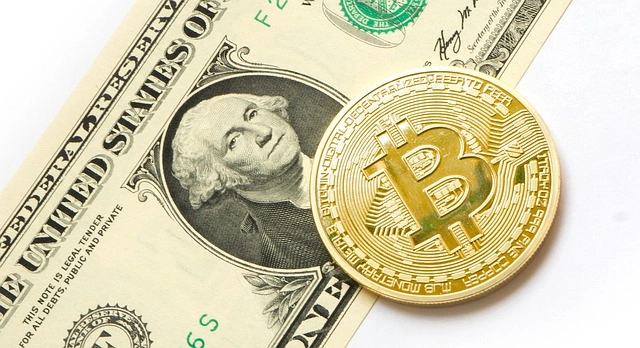

A Landmark Vote for Crypto Adoption
The unanimous vote, with no opposition in the subcommittee, reflects a surprising consensus among Florida lawmakers on the potential of Bitcoin to diversify the state’s investment portfolio. Sponsored by Representative Webster Barnaby, HB 487 authorizes the state’s Chief Financial Officer to allocate up to 10% of public funds—potentially $1.5 billion based on current budgets—into Bitcoin.
The bill’s proponents argue that holding Bitcoin could hedge against inflation and economic uncertainty, especially as traditional assets like bonds face pressure from rising interest rates.
“This is about future-proofing Florida’s economy,” Barnaby said during the April hearing. “Bitcoin has shown resilience as a store of value, and we can’t ignore its potential to strengthen our financial position.” The bill advances to the Government Operations Subcommittee, with further reviews expected in the Ways & Means and Commerce Committees before reaching the full House.
Florida’s move comes amid a broader wave of cryptocurrency enthusiasm in the U.S., spurred by federal developments. In March 2025, President Donald Trump signed an executive order encouraging states to explore digital assets, while Senator Cynthia Lummis reintroduced the BITCOIN Act, aiming to establish a federal Bitcoin reserve.
These actions have emboldened states like New Hampshire, Arizona, and Utah to pursue similar legislation, but Florida’s unanimous committee vote sets it apart for its decisiveness.
 Source: Pixabay
Source: Pixabay
The Economic Rationale
The push for Bitcoin as a reserve asset stems from its meteoric rise in value and growing acceptance among institutional investors. Since 2020, Bitcoin’s price has surged from under $10,000 to around $83,400 as of March 2025, despite periodic volatility.
Advocates highlight its fixed supply cap of 21 million coins as a hedge against fiat currency devaluation, especially as global inflation remains a concern following supply chain disruptions and energy price spikes in 2024.
Florida’s economy, heavily reliant on tourism and real estate, has faced challenges from rising borrowing costs. By diversifying into Bitcoin, the state aims to tap into an asset class that has outperformed gold and equities over the past decade.
However, critics warn of Bitcoin’s volatility and regulatory uncertainties. “Public funds should prioritize stability, not speculation,” argued Sarah Coleman, a financial analyst based in Miami. “A sharp drop in Bitcoin’s price could strain state budgets, leaving taxpayers on the hook.”
Despite these concerns, the subcommittee’s vote suggests lawmakers are willing to take the risk, betting on Bitcoin’s long-term potential.
Florida in the National Crypto Race
Florida isn’t alone in eyeing Bitcoin as a reserve asset. New Hampshire’s HB 302 passed its House in a tight 192-179 vote on the same day as Florida’s committee approval, limiting investments to digital assets with a market cap above $500 billion, effectively Bitcoin only.
Arizona and Utah have also advanced similar bills, while Texas introduced a $250 million Bitcoin reserve proposal in March 2025. These efforts reflect a growing belief that states can gain a competitive edge by embracing crypto early.
Florida’s unique position lies in its economic clout and tech-friendly policies. Home to Miami’s burgeoning crypto hub, the state has hosted major blockchain conferences and attracted firms like Ripple and Binance. US. Mayor Francis Suarez’s vision of Miami as the “crypto capital of the world” has fueled local support for HB 487, with grassroots campaigns urging lawmakers to pass the bill.
Challenges and Next Steps
Despite the early victory, HB 487 faces a long road. The bill must navigate three more committees, where debates over risk management and oversight could intensify.
Environmental concerns about Bitcoin mining’s energy consumption (though less relevant to holding reserves) may also surface, given Florida’s vulnerability to climate change.
If approved by the full House and Senate, the bill could take effect as early as September 2025, making Florida the first state to hold Bitcoin in its treasury.
A Signal to the World
Florida’s HB 487 approval sends a clear message: cryptocurrencies are no longer a fringe experiment but a serious contender in public finance. As the bill progresses, it could inspire other states and nations to rethink their approach to digital assets.
For now, Florida stands at the forefront of a financial revolution, balancing bold ambition with the weight of responsibility.
He has worked with several companies in the past including Economy Watch, and Milkroad. Finds writing for BitEdge highly satisfying as he gets an opportunity to share his knowledge with a broad community of gamblers.
Nationality
Kenyan
Lives In
Cape Town
University
Kenyatta University and USIU
Degree
Economics, Finance and Journalism


Facts Checked by Vlad Hategan

 Fact checked by
Fact checked by 
 eabungana@gmail.com
eabungana@gmail.com 